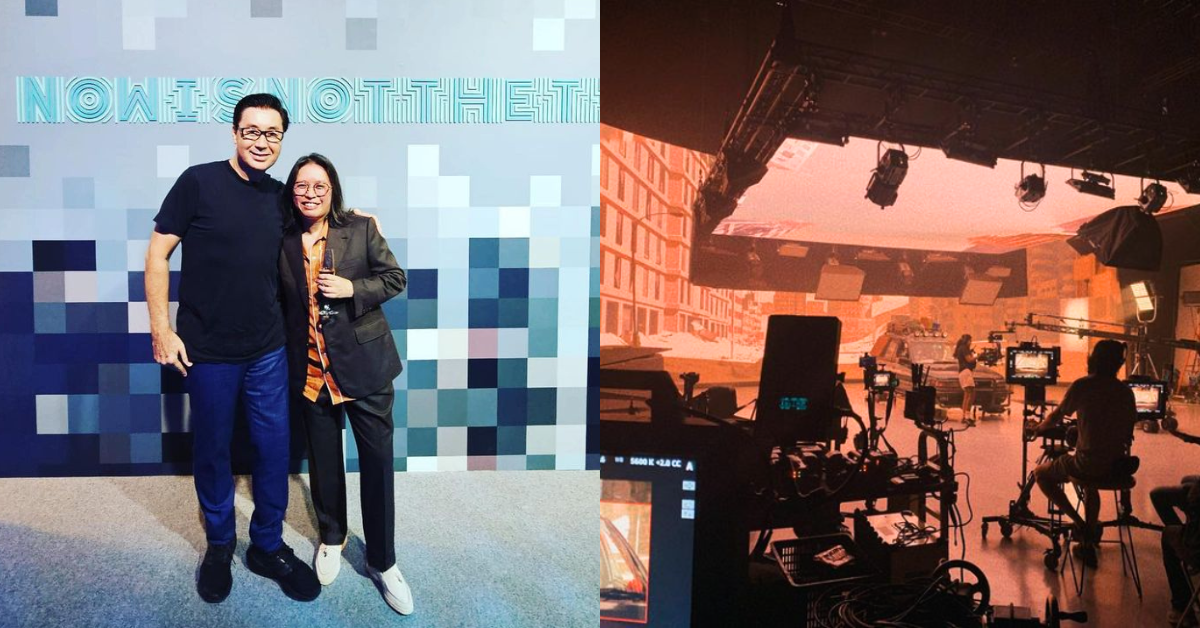“As a country, we lag behind our neighbours and the world in terms of movie and television because of [the] lack of resources, spaces to film, talent, and viewers,” Karen Seah, the co-founder of X3D Studio said to Vulcan Post.
“However, if we’re able to lead in the space of virtual production, we’ll be able to expand the possibilities for our media industry in terms of opportunities, projects, creativity, and jobs.”
So that’s exactly why she and her co-founder, Myke Brown, opened X3D Studio in Singapore, which is said to be the largest Southeast Asian virtual production studio.
Dictionary Time: Virtual production is technology whereby LED panels are used as a backdrop for a set, on which video or computer-generated imagery can be displayed in real-time.
From old to something new
Housed in a 40,000 sq ft old power station with high ceilings of 25m, the studio is a stone’s throw away from Labrador Villa MRT.
A total of S$8 million was spent on refurbishment to turn the site into a state-of-the-art studio. It features a beautiful steel architectural wall that separates the main studio from the event space, as well as a lounge, editing studio, crew area, mini studio, and artist changing rooms.
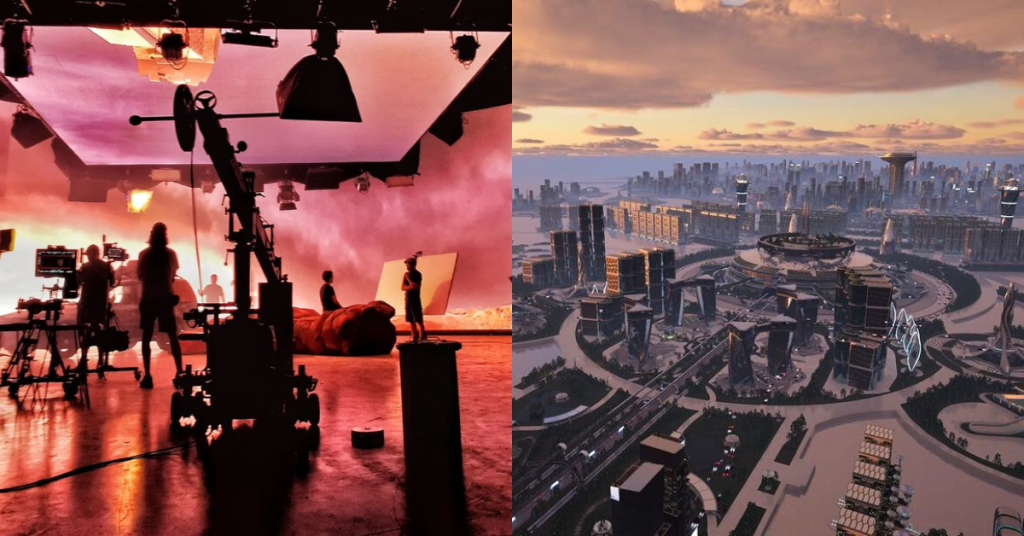
But what makes it live up to the co-founders’ goal of X3D Studio being a market leader is the technology.
It’s one of the world’s first virtual ICVFX (in-camera visual effects) production studios that is accredited by ARRI, a leading tech company in the filming industry.
Customers of the studio will benefit from ARRI technology, including an ALEXA 35 camera and Signature Prime lenses, SkyPanel X, and Orbiter lighting fixtures. It also houses INFiLED‘s LED display (which has impressive specs in colour accuracy) and OptiTrack for precise camera tracking amongst other quality filming equipment.
None of these names may mean much to the regular joe but the general premise is that all these factors combined will help filmmakers achieve their creative visions more easily.
Bridging the talent gap
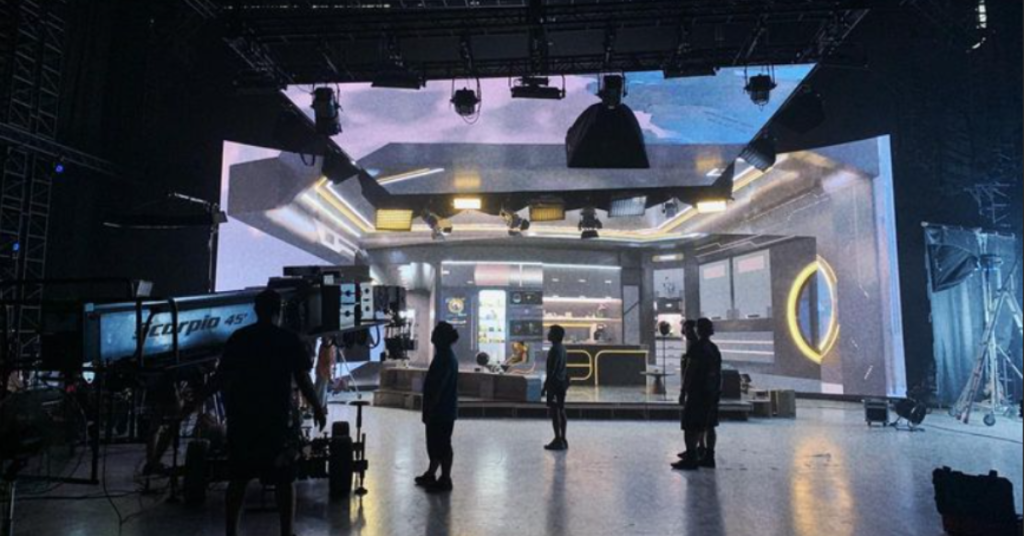
The decision to establish X3D Studio came about two years ago, and it took them a year and a half to make this a reality.
Sharing with us, Karen explained that they realised how beneficial it would be to combine their experiences in different lanes of the media industry. Together, they could build a forward thinking, state-of-the-art studio in Southeast Asia.
“As both of us have been producers for many years, we see that it is necessary for us to be ready for the future of filmmaking,” she said. “Virtual production represents a whole evolution, and not merely an upgrade. We knew that it was going to happen and we wanted to be market leaders in this sector.”
According to her, achieving this required them to check off two boxes: building a world class studio and bringing world-class projects into this studio.
The studio would provide them with the appropriate space to collaborate with “the very best partners” and train the best teams to service world-class projects. On that note, X3D Studio will be working with Nanyang Polytechnic to conduct two of three courses in virtual production.
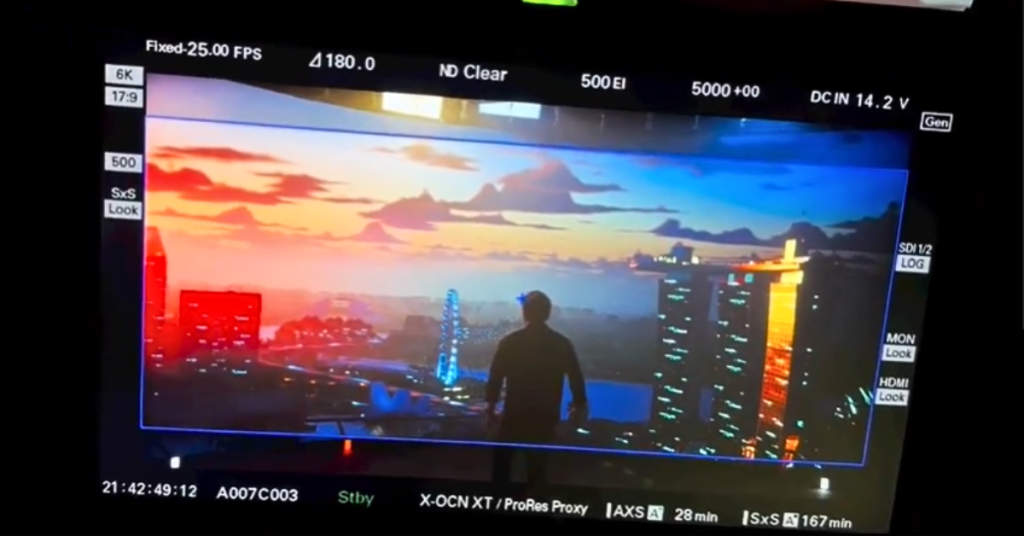
Through this, the studio aims to train budding creatives and grow the talent pool for the virtual production industry in Singapore.
This aligns with the government’s vision as well. In December last year, the Infocomm Media Development Authority (IMDA) announced a funding of S$55 million to support international co-productions and enhance local virtual production capabilities.
Creating new jobs along the way
Finding the right space was essential to setting up X3D Studio. It needed to be the right size, have the right ceiling height, structure, and floor plan, while still being convenient for clients and students.
So when the co-founders found this old power station, they knew it was the spot for them. It just needed a little bit of TLC (tender, loving, care).
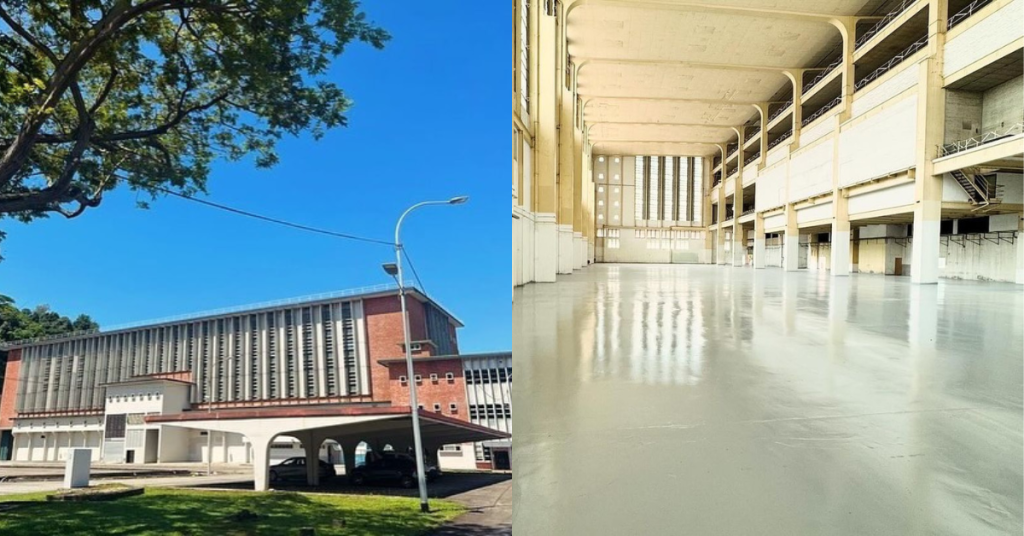
“25 Pasir Panjang was an unused building that was in a very bad state. While it is prime land, it was in no condition to be used for anything,” Karen shared. “Therefore, I spent more than a year going through the process to rent this building and make the space usable [with a] considerable amount of Capex.”
As for the ARRI accreditation, it took them 10 months of auditing, inspecting, and team training. Every single product, equipment, and setup had to be assessed before the studio got accredited.
With this stamp of approval, the studio sees it as a big win for Singapore and the future of the virtual production industry here. It signals to the world and clients (like directors and television companies) that the nation is able to produce top quality films.
At the same time, they’re expecting the studio to create new job roles that previously never existed in Singapore. This in turn would have schools coming up with new curricula to meet industry demands.
Each time the co-founders shoot a project, they hire at least 30 pax on set. The duo expect to be doing one to two projects a month of different sizes. This means that each month, they’re hoping to hire up to 60 freelancers.
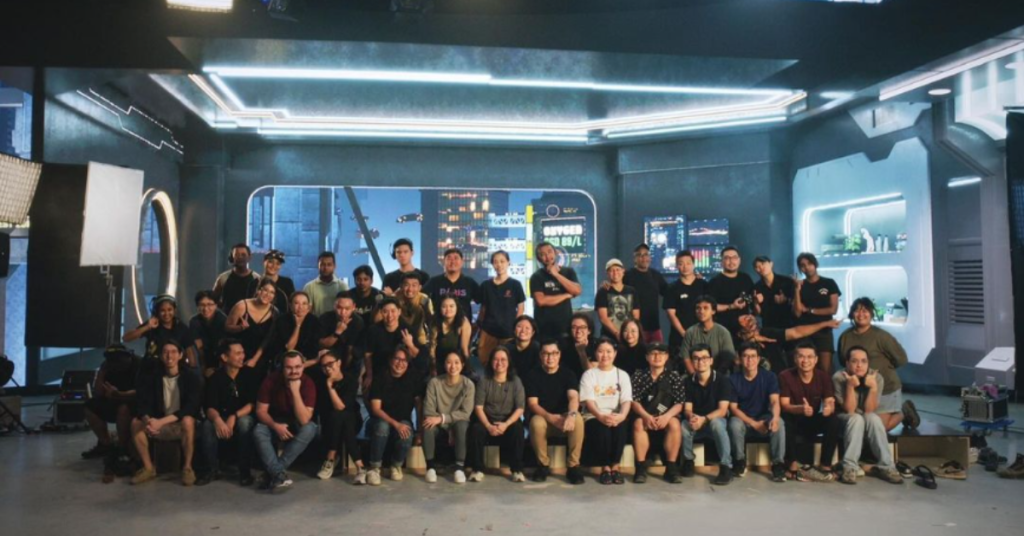
Starting off with new films
All that said, a lack of local awareness and exposure on virtual production still poses a challenge.
“People don’t understand what virtual production is in the first place because nobody writes about it, nobody wants to cover it,” Karen expressed. “How we intend to address this is to produce our own projects using virtual production, as well as to actively woo international producers to come to our studio.”
“We know what we are doing is really amazing and if it’s good enough for international producers, perhaps we might finally be seen here [in Singapore].”
X3D Studio recently marked its launch with the premiere of two sci-fi short films. Titled “Trap” and “Dead End“, these films are available to view on its website and YouTube channel.
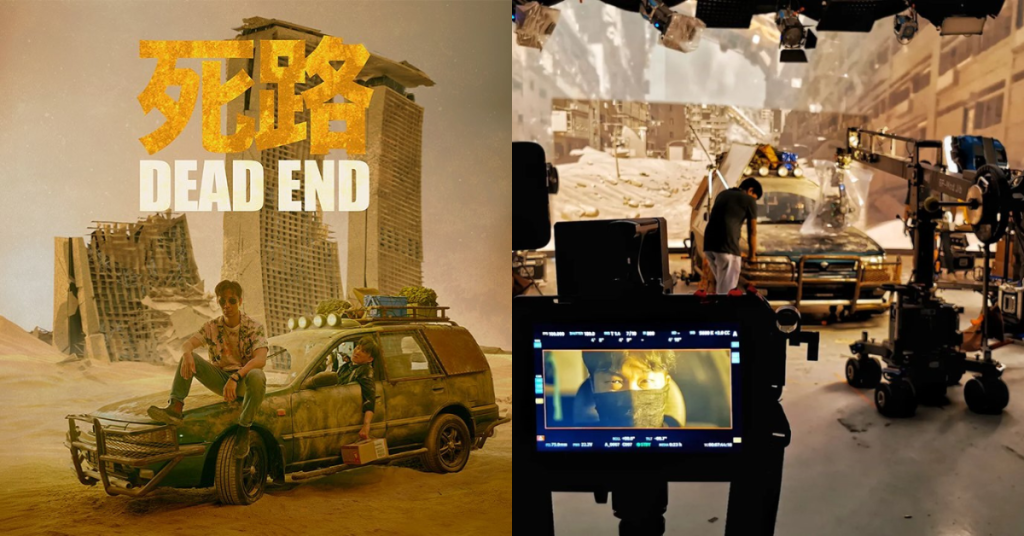
In time, they hope the local media landscape will come to embrace virtual production. But for now, they’ll focus on bringing more global projects into Singapore and upskill as many freelancers as possible.
The studio is currently about to start working on an international film, of which they’re also co-producing.
- Learn more about X3D Studio here.
- Read other articles we’ve written about startups here.
Featured Image Credit: X3D Studio

